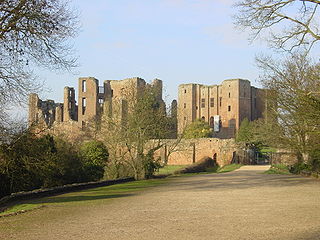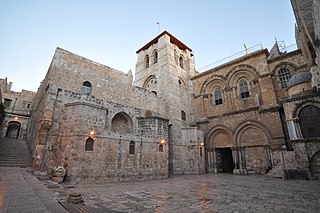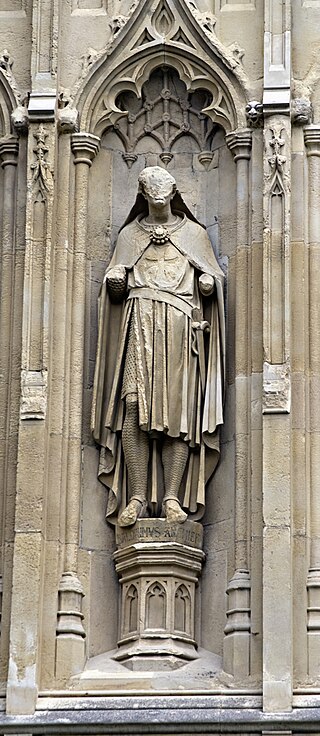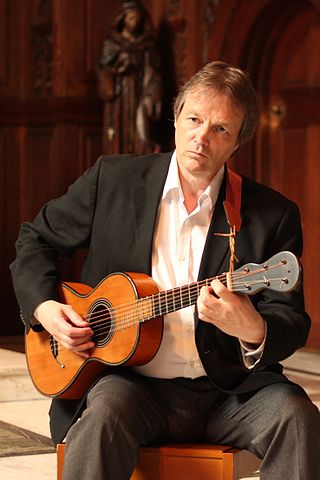Related Research Articles

The Dictum of Kenilworth, issued on 31 October 1266, was a pronouncement designed to reconcile the rebels of the Second Barons' War with the royal government of England. After the baronial victory at the Battle of Lewes in 1264, Simon de Montfort took control of royal government, but at the Battle of Evesham the next year Montfort was killed, and King Henry III restored to power. A group of rebels held out in the stronghold of Kenilworth Castle, however, and their resistance proved difficult to crush.
Year 1213 (MCCXIII) was a common year starting on Tuesday of the Julian calendar.

Year 1047 (MXLVII) was a common year starting on Thursday of the Julian calendar.
Robert Burnell was an English bishop who served as Lord Chancellor of England from 1274 to 1292. A native of Shropshire, he served as a minor royal official before entering into the service of Prince Edward, the future King Edward I of England. When Edward went on the Eighth Crusade in 1270, Burnell stayed in England to secure the prince's interests. He served as regent after the death of King Henry III of England while Edward was still on crusade. He was twice elected Archbishop of Canterbury, but his personal life—which included a long-term mistress who was rumoured to have borne him four sons—prevented his confirmation by the papacy. In 1275 Burnell was elected Bishop of Bath and Wells, after Edward had appointed him Lord Chancellor in 1274.

The crusading movement encompasses the framework of ideologies and institutions that described, regulated, and promoted the Crusades. The crusades were religious wars that the Christian Latin Church initiated, supported, and sometimes directed in the Middle Ages. The members of the Church defined this movement in legal and theological terms that were based on the concepts of holy war and pilgrimage. In theological terms, the movement merged ideas of Old Testament wars that were believed to have been instigated and assisted by God with New Testament ideas of forming personal relationships with Christ. The institution of crusading developed with the encouragement of church reformers the 11th century in what is commonly known as the Gregorian Reform and declined after the 16th century Protestant Reformation.
David Bates is a historian of Britain and France during the period from the tenth to the thirteenth centuries. He has written many books and articles during his career, including Normandy before 1066 (1982), Regesta Regum Anglo-Normannorum: The Acta of William I, 1066–1087 (1998), The Normans and Empire (2013), William the Conqueror (2016) in the Yale English Monarchs series and La Tapisserie de Bayeux (2019).

Sir James Cochran Stevenson Runciman, known as Steven Runciman, was an English historian best known for his three-volume A History of the Crusades (1951–54). His works had a profound impact on the popular conception of the Crusades.
Audita tremendi is an encyclical first issued by Pope Gregory VIII on 29 October 1187, calling for what came to be known as the Third Crusade.

Baldwin of Forde or Ford was Archbishop of Canterbury between 1185 and 1190. The son of a clergyman, he studied canon law and theology at Bologna and was tutor to Pope Eugene III's nephew before returning to England to serve successive bishops of Exeter. After becoming a Cistercian monk he was named abbot of his monastery at Forde and subsequently elected to the episcopate at Worcester. Before becoming a bishop, he wrote theological works and sermons, some of which have survived.

The County Palatine of Durham was a jurisdiction in the North of England, within which the bishop of Durham had rights usually exclusive to the monarch. It developed from the Liberty of Durham, which emerged in the Anglo-Saxon period. The gradual acquisition of powers by the bishops led to Durham being recognised as a palatinate by the late thirteenth century, one of several such counties in England during the Middle Ages. The county palatine had its own government and institutions, which broadly mirrored those of the monarch and included several judicial courts. From the sixteenth century the palatine rights of the bishops were gradually reduced, and were finally abolished in 1836. The last palatine institution to survive was the court of chancery, which was abolished in 1972.

The Crusades were a series of religious wars initiated, supported, and sometimes directed by the Christian Latin Church in the medieval period. The best known of these military expeditions are those to the Holy Land in the period between 1095 and 1291 that were intended to reconquer Jerusalem and its surrounding area from Muslim rule after it had been taken by force centuries earlier. Beginning with the First Crusade, which resulted in the conquest of Jerusalem in 1099, dozens of military campaigns were organised, providing a focal point of European history for centuries. Crusading declined rapidly after the 15th century.

Christopher Howard Page is an English expert on medieval music, instruments and performance practice, together with the social and musical history of the guitar in England from the sixteenth century to the nineteenth. He has written numerous books regarding medieval music. He is currently a Fellow of Sidney Sussex College, Cambridge and Emeritus Professor of Medieval Music and Literature in the Faculty of English, University of Cambridge.
Carole Hillenbrand, is a British Islamic scholar who is Emerita Professor in Islamic History at the University of Edinburgh and Professor of Islamic History at the University of St Andrews. She is the Vice-President of the British Society for Middle Eastern Studies and a Member of the Council for Assisting Refugee Academics.

Cathar castles are a group of medieval castles located in the Languedoc region. Some had a Cathar connection in that they offered refuge to dispossessed Cathars in the thirteenth century. Many of these sites were replaced by new castles built by the victorious French Crusaders and the term Cathar castle is also applied to these fortifications despite their having no connection with Cathars. The fate of many Cathar castles, at least for the early part of the Crusade, is outlined in the contemporary Occitan "Chanson de la Croisade", translated into English as the "Song of the Cathar Wars ".
Mark Gregory Pegg is an Australian professor of medieval history, currently teaching in the United States at Washington University in St. Louis, Missouri. His scholarship focuses upon heresy, the inquisition, the Albigensian Crusade, and the history of holiness. Apart from these specific scholarly pursuits, he writes more broadly about what shapes and defines the medieval West from 200 to 1500. He is the author of The Corruption of Angels: The Great Inquisition of 1245–1246, A Most Holy War: The Albigensian Crusade and the Battle for Christendom, and Beatrice's Last Smile: A New History of the Middle Ages.
Peter R. Coss is a British historian, specialising in the history of the English medieval gentry. He is Emeritus Professor of Medieval History at the School of History, Archaeology, and Religion at Cardiff University, Wales. His research interests also include 12th- to 15th-century English social history and Italian history from the same period, as well as visual history/social display and literature and history. As of 2008, he was working on a comparative project between the English gentry and the nobility of Tuscany, and another on the foundations of gentry culture. Coss studied under Rodney Hilton. He is a member of the historical journal Past & Present, and also a former member of the council of the Royal Historical Society.

The historiography of the Crusades is the study of history-writing and the written history, especially as an academic discipline, regarding the military expeditions initially undertaken by European Christians in the 11th, 12th, or 13th centuries to the Holy Land. This scope was later extended to include other campaigns initiated, supported, and sometimes directed by the Roman Catholic Church. The subject has involved competing and evolving interpretations since the capture of Jerusalem in 1099 until the present day. The religious idealism, use of martial force and pragmatic compromises made by those involved in crusading were controversial, both at the time and subsequently. Crusading was integral to Western European culture, with the ideas that shaped behaviour in the Late Middle Ages retaining currency beyond the 15th century in attitude rather than action.
Sir Robert Howard (1385—1436), Knight, of Stoke by Nayland, Suffolk, was an English nobleman, the eldest son of John Howard, of Wiggenhall and East Winch, Norfolk, by the latter's second wife, Alice Tendring. Alice was also an heiress, although not to the same degree as John Howard's first wife, Lady Plaiz, who had brought him estates worth over £400 per annum. They had two sons; Robert was the elder. His younger brother, Henry Howard was later murdered by retainers of John, Baron Scrope of Masham, after his parents and brother had died.

García Miguel de Ayerbe was an Aragonese nobleman and cleric who served as the bishop of León from April 1318 until his death. In the 1320s, he wrote a proposal for a new crusade to recover the Holy Land.
This list of works on the history of the Crusades and their mainly Muslim opponents, provides a select bibliography of modern works that are frequently cited in books, papers and articles that discuss these "holy wars". Thousands of histories on these topics have been published between the 11th and 21st centuries; this page only lists modern works on the topic. Works included are referenced in the notes or bibliographies of scholarly secondary sources or journals. Included works are: published by an independent academic or notable non-governmental publisher; authored by an independent and notable subject matter expert; or have significant independent scholarly journal reviews.
References
- ↑ "Professor Christopher Tyerman" Archived 2018-03-17 at the Wayback Machine , Hertford College, Oxford. Retrieved 22 November 2016.
- ↑ "Recognition of Distinction: Successful Applicants 2015" Archived 2018-02-27 at the Wayback Machine , The University of Oxford Gazette, no. 510915, October 2015. Retrieved 20 November 2016.